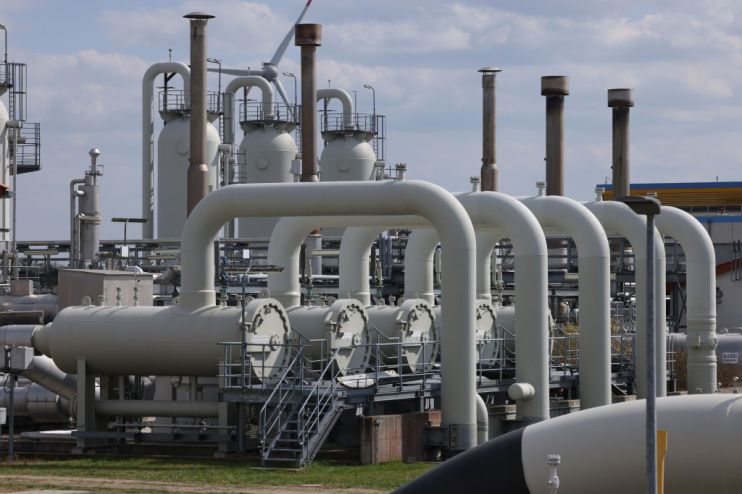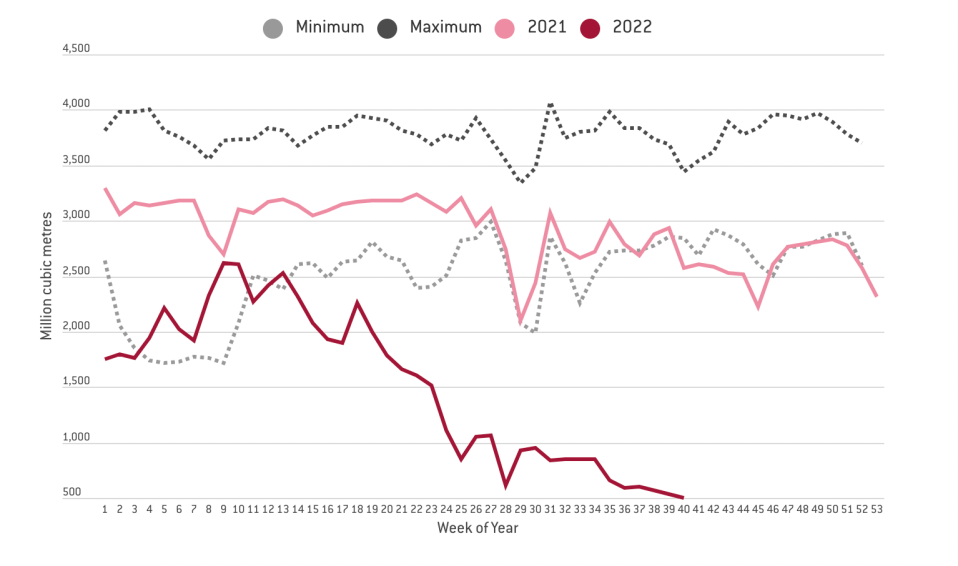Gazprom boss threatens to halt gas supplies into Europe if cap introduced

Russia would halt gas supplies into Europe if the price of its gas exports was capped warned Alexei Miller, chief executive of Kremlin-backed energy giant, Gazprom.
In a broadcast on state television, he said: “Such a one-sided decision is of course a violation of existing contracts, which would lead to a termination of supplies.”
Miller’s comments echo a similar threat from President Vladimir Putin last month, who blamed the West’s energy problems on its green policies.
Putin predicted the West it would be “frozen” like a wolf’s tail if Russia turned off the taps, alluding to the famous Russian fairy tale.

It also comes after Miller predicted a potential supply crunch for the European Union (EU) next spring, with the bloc topping up storage to over 90 per cent of capacity ahead of winter.
The EU has introduced pledges to cut energy usage, with member states also reducing their purchases of Russian energy following the invasion of Ukraine.
For instance, Germany, the EU’s biggest buyer of Russia gas, has dropped its dependence on Kremlin-backed gas imports from 55 per cent to 35 per cent over the course of the year.
This follows Western sanctions targeting Russian coal and oil imports, alongside measures to ration energy and scramble to secure liquefied natural gas from the US and Gulf states.
Russia has retaliated in recent months with demands for purchases to be made in roubles, halting gas supplies via the Nord Stream pipeline, and by entering into a protracted legal battle with Ukraine state provider Naftogaz.
EU pushes forward with gas price cap proposals
This has not dissuaded the West from pursuing further sanctions, with the G7 and the European Commission pushing to impose a price cap on Russian oil and gas.
Gas prices have spiked this year to all-time highs, putting immense pressure on the EU amid rebounding post-pandemic demand and helping to fund Russia’s war revenues.
This has raised concerns of supply shortages and blackouts, with high energy prices exacerbating other challenging factors such as nuclear outages in France and droughts at hydroelectric dams in Norway.

A majority of EU states say a gas price cap should come next, however countries disagree on whether it should apply to all trades, long-term contracts, or simply gas used to produce electricity.
Some countries including Germany and the Netherlands, remain opposed to the idea.
Instead, they have tabled proposals for a compromise measure of joint gas buying.
This will be discussed further in Prague next week following meetings over the past few days in the Czech capital between the 27 member states.
For all the latest Lifestyle News Click Here
For the latest news and updates, follow us on Google News.

